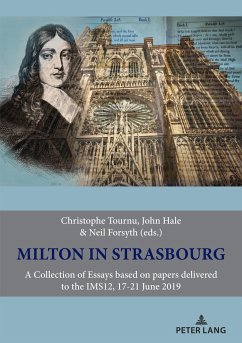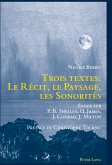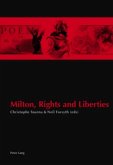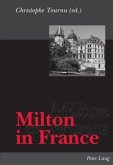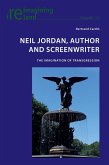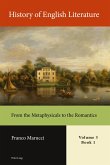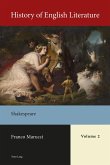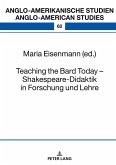This book showcases cutting-edge research papers from the XIIth international Milton Symposium hosted by the University of Strasbourg, 17-21 June 2019. Strasbourg is home to Martin Bucer, the Protestant reformer from whom Milton drew support for his theory of divorce, and to Gustave Doré, the famous French illustrator of Paradise Lost. The 26 essays gathered in the present volume are by international scholars, including ones from countries outside the Anglosphere, young or experienced.
Opening with a tribute to all Milton symposia organized since 1981, the book falls into eight parts, covering all aspects of Milton studies. "Milton and Materiality" starts with an essay by James G. Turner on personal bodily reference in Milton. In "Milton's Style and Language", the polemicist's use of satire is scrutinized and his relation to enthusiasm is examined, while a new light is shed on his sonnets. In "Milton's Prose", in a rare essay on Observations upon the Articles of Peace (1649), David H. Sacks compares Milton's view of Ireland with what he thought of Russia, delving into the notions of "civilization" and "tyranny". Then the reader will find six essays on Paradise Lost, including one by Hiroko Sano, followed by three essays on his minor poems by promising scholars. The debate on the authorship of De Doctrina Christiana is reopened, with many stylometric tables and charts. A new track leads us to Silesia.
In "Reception Studies", two Brazilian contributors study Milton through the lens of French philosophers, and the next essay by Christophe Tournu focuses on the first French verse translation of Paradise Lost. The concluding part, "Milton and his Audience", considers Milton's relationship to his readers, music in Haydn's Creation, while Beverley Sherry analyses portraits of Milton and his works in stained glass.
Opening with a tribute to all Milton symposia organized since 1981, the book falls into eight parts, covering all aspects of Milton studies. "Milton and Materiality" starts with an essay by James G. Turner on personal bodily reference in Milton. In "Milton's Style and Language", the polemicist's use of satire is scrutinized and his relation to enthusiasm is examined, while a new light is shed on his sonnets. In "Milton's Prose", in a rare essay on Observations upon the Articles of Peace (1649), David H. Sacks compares Milton's view of Ireland with what he thought of Russia, delving into the notions of "civilization" and "tyranny". Then the reader will find six essays on Paradise Lost, including one by Hiroko Sano, followed by three essays on his minor poems by promising scholars. The debate on the authorship of De Doctrina Christiana is reopened, with many stylometric tables and charts. A new track leads us to Silesia.
In "Reception Studies", two Brazilian contributors study Milton through the lens of French philosophers, and the next essay by Christophe Tournu focuses on the first French verse translation of Paradise Lost. The concluding part, "Milton and his Audience", considers Milton's relationship to his readers, music in Haydn's Creation, while Beverley Sherry analyses portraits of Milton and his works in stained glass.

